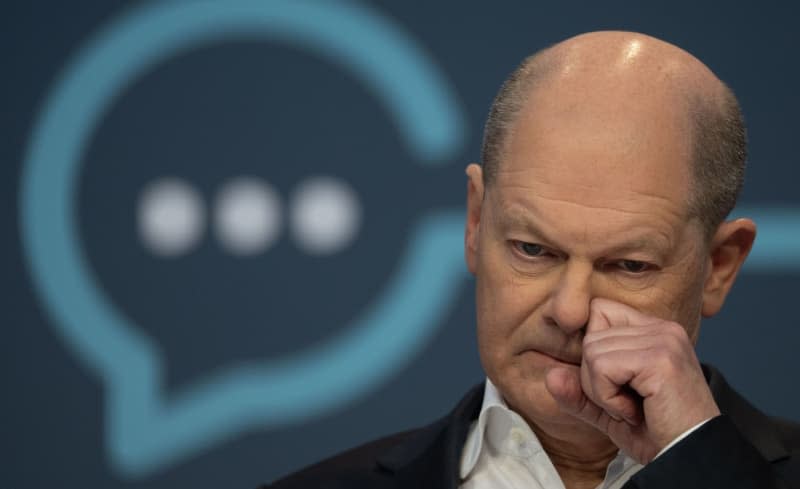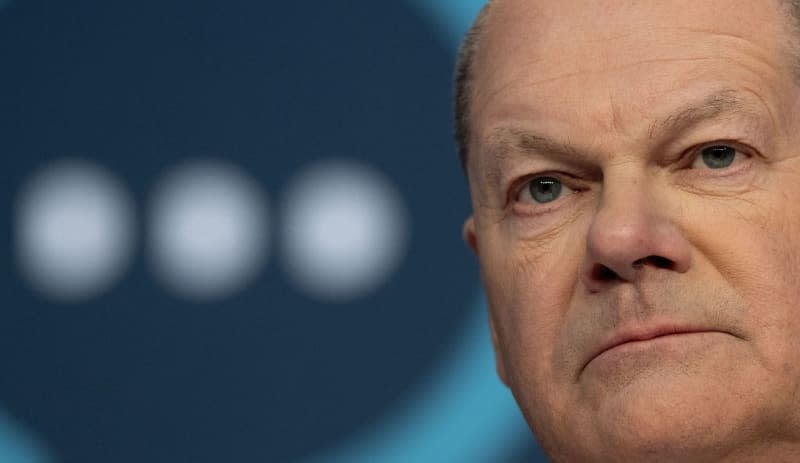Scholz: War in Ukraine could last several more years

- Oops!Something went wrong.Please try again later.
- Oops!Something went wrong.Please try again later.
- Oops!Something went wrong.Please try again later.
German Chancellor Olaf Scholz believes that the war in Ukraine could drag on for several more years; Nobody could say whether this war might not even last five years, for example, Scholz said on Friday evening in the eastern city of Chemnitz.
He defended Germany's military support for Ukraine. In addition, diplomacy must be cultivated, he added.
Since the beginning of the war, however, Russian President Vladimir Putin had shown no signs of movement, he said. A dictated peace is unacceptable, emphasized Scholz: "He must not be allowed to get away with this."
Scholz was a guest on Friday evening at a panel discussion organized by the Freie Presse (Free Press) newspaper entitled "Germany under pressure. How can the [government] coalition act under new conditions?"
According to the information provided, the debate was followed by around 200 readers of the newspaper and other invited guests. The discussion was also livestreamed on the internet.
Scholz said earlier Friday that talks with Chinese officials about the war in Ukraine during his recent trip provided a "very important boost" for diplomatic efforts to end the conflict.
Scholz emphasized that he was in agreement with the Chinese leadership on the need for peace conferences in Switzerland to discuss the war.
"[Diplomatic efforts are] something that is indispensable in this laborious process, and I am grateful that Germany, and I personally, were also able to make a contribution," Scholz said.
Scholz said that the diplomatic efforts were "still a plant that needs a lot of watering ... but it is something that exists and that we are nurturing."
Switzerland is planning a peace summit for June 15 and 16, to which it intends to invite around 100 countries, including Ukraine.
Russia is not expected to attend, but countries that have friendly ties with Russia, such as China, Brazil and South Africa, could join.
During his visit to Beijing on Tuesday, Scholz agreed with Chinese President Xi Jinping to coordinate "intensively and positively" on the upcoming peace summit and possible further conferences.
But the prospects for results are not strong: After more than two years of intense fighting in Ukraine, Russian Foreign Minister Sergei Lavrov on Friday reasserted Moscow's claimed right to rule over its neighbour.
At most, the future of western Ukraine is unclear, Lavrov told several Russian broadcasters in an interview in Moscow.
Otherwise, there will only be a Ukraine "that is truly Russian, that wants to be part of the Russian world, that wants to speak Russian and educate its children," he said.
There was no question of any alternative, according to Lavrov, 74, who has served as foreign minister since 2004 and is a staunch supporter and confidant of Putin.
Russia does not want to attack NATO states, as is claimed in the West to scare voters, Lavrov said.
"But if they want to push NATO's borders to our borders, then we will of course know how to prevent that in Ukraine," Lavrov said.
Like other senior members of the leadership, Lavrov said Russia was ready for talks with Ukraine, but only under specific conditions.
There would be no ceasefire during possible negotiations, talks with Zelensky are pointless, and Kiev would have to move away from his peace formula, he said.
In the autumn of 2022, Zelensky drew up 10 points that included the withdrawal of Russian troops, reconstruction and reparations, and the prosecution of war criminals.


